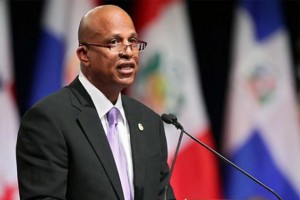On the heal of alarms and concerns about impending banking crisis facing regions such as the Caribbean as regards negative impact on remittance flows, the question is being asked by many is, ‘Is this much to do about nothing?
We at the Caribbean Enterprise Network (CEN) recently explored this issue at our Bi Monthly Webinar when we interviewed a leading global Banker, Caricom Economist and a few leading diaspora entrepreneurs in retail, media and property.
REGIONAL FEEDBACK TO DATE
The prime minister of Belize and incoming chairman of the Caribbean Community (CARICOM) Hon. Dean Barrow, recently warned that the threats to the region’s banking sector via the phenomenon of de-risking could have “cataclysmic ramifications” for the Caribbean, and a “relentless” campaign must be waged against it, ‘it cannot be other than relentless in the face of the possible correspondent banking Armageddon that we face. It is therefore a matter that looms extremely large on our agenda over the next two days, and has already been the subject of a dedicated finance ministers meeting’, Barrow said.
The matter is a key agenda item of the two-day summit, and a meeting of finance ministers was recently held to craft a regional response. A committee of ministers of finance on correspondent banking, chaired by Antigua and Barbuda’s prime minister and minister of finance, Gaston Browne, will lead the response to this issue.
The committee is supported by leading regional institutions including the Committee of Central Bank Governors (CCBG), the Caribbean Association of Banks (CAB) and the Caribbean Financial Action Task Force (CFATF).
The threat relates to the possible loss of access to the international financial markets by mainly the regional indigenous banks. Several international banks, mainly in the US and Europe, have signalled to client banks in the region an unwillingness to continue carrying their business.
This so-called ‘de-risking’ by the global banks threatens to impact several critical services, including remittance transfers. International trade, the facilitation of credit card settlements for local clients are among the other effects the region faces.
Barrow was recently in Washington to raise the matter of correspondent banking relationships directly with the regulators in the United States and, while he reported receiving sympathy, he pointed out that regulators have provided only an undertaking to indicate to their banks that regional jurisdictions “have done and are doing everything we can to be fully AML/CFT compliant; and that there was therefore no in principle objection to those banks doing business with us”.
CARICOM secretary-general, Irwin LaRocque, who made remarks at the ceremony, also addressed the correspondent banking relationship issue and referred to it as an immediate existential threat.
The Caribbean, he pointed out, was “inarguably one of those most adversely affected by these de-risking strategies and our people have already begun to feel the consequences of such arbitrary decisions”. He sought collective action to deal with the matter.
“This situation threatens the financial and economic stability of our region. It is having an impact on the ability of our people to receive their remittances and transfer their funds for trade and investment transactions. This state of affairs demands that we act collectively to address this issue with the relevant regulatory authorities and the international community,” the secretary-general said.
However leading global banker Mr. Manohari, who has worked for over 20 years in both first world and emerging markets and who currently heads up the National Commercial Bank (NCB) in the UK, one of the largest commercial banks in the Caribbean begs to differ as regards any major crisis in this area or negative impact on remittances etc, Mr. Manohari stressed that correspondent banking is based on governance, systems and relationships and if there are issues with regional banks in this respect, then they need to be addressed, he highlighted that corresponding banking is not the only means of transferring monies aboard.
Caribbean Economist Edwin Laurent added that if there are any break down with these corresponding banks there could be challenges particularly for the smaller economies like the OECS and advises that these institutions need to step up their corporate governance structures in order to strengthen their banking relationships with foreign banks particularly in the area of know your customer (KYCs) procedures to be intact, so as to avoid illegitimate transactions.
While the discussions continue interviews with diaspora businesses and persons in the diaspora are yet to see any mass negative impact of adverse banking relations to date and transferring of funds to the Caribbean in the usual manner. With the advent of Mobile Money etc that’s taking over the way we transact business and transfer money, it now begs the question: ‘is this much to do about nothing?
Denis St.Bernard
Director – Caribbean Enterprise Network – CEN
Excerpt from \CEN / JSE WEBINAR – HOST DR. NIGEL WILLIAMS & ST BERNARD.



